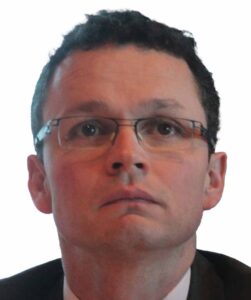
A day of heated debate has followed comments by Limerick-based Minister Patrick O’Donovan who accused hoteliers of “robbing people up to their eyeballs” with exorbitant prices, particularly during major events such as concerts and sporting fixtures in Dublin.
The Fine Gael TD warned that the promised reduction in the hospitality VAT rate from 13.5pc to 9pc is not a certainty for hotels, casting doubt on the sector’s expectations for tax relief. O’Donovan, who previously held the tourism portfolio, described the practice of price gouging as “killing the goose that lays the golden egg,” suggesting that hotels’ aggressive pricing strategies risk long-term damage to Ireland’s tourism industry.
The minister’s remarks come in the wake of widespread complaints about soaring hotel prices, particularly in Dublin, where rates have reportedly surged by up to 30pc around high-profile events like the College Football Classic and Oasis concerts.
Routinely overcharging
O’Donovan highlighted that hotels are “routinely” overcharging during such occasions, a practice he believes undermines the government’s efforts to support the sector through agencies like Fáilte Ireland and Tourism Ireland. “There’s no point in crying after the fact – you’ve robbed people up to their eyeballs, and then ask the Government to bail you out,” he stated, urging hoteliers to view their relationship with the government as a “two-way street.”
The comments have provoked a sharp response from the Irish Hotels Federation (IHF). President Michael Magner expressed surprise at O’Donovan’s remarks, acknowledging the minister’s credentials but arguing that he lacks insight into the realities of running a hospitality business. Magner defended the sector, noting that Dublin’s hotels are often fully booked during major events, justifying dynamic pricing as a response to high demand.
On The Last Word, IHF chief executive Paul Gallagher and travel journalist Eoghan Corry further debated the issue, with Gallagher arguing that operational costs and market pressures drive pricing decisions, not opportunistic greed.
Broader economic challenges
Public sentiment, as reflected in online discussions, has been mixed. Some social media users have echoed O’Donovan’s frustration, with posts on X describing hotel prices as “extortionate” and criticising the government’s broader tourism policies.
Others, however, have pointed out that high prices are a symptom of broader economic challenges, including the use of hotels to house asylum seekers, which has strained accommodation availability. One user noted that hotel owners are “happy to rake in extortionate amounts” for such arrangements, highlighting tensions around the sector’s role in Ireland’s immigration strategy.
The controversy has also reignited debate over the upcoming Budget, set for October 2025. While Fine Gael’s manifesto pledged a VAT cut for hospitality, a party spokesperson clarified that this commitment primarily applies to food services, entertainment, hairdressing, and beauticians, not hotel room rates.
Finance Minister Paschal Donohoe faces mounting pressure to balance tax relief with fiscal prudence, especially as the Exchequer’s improved position fuels calls for broader tax cuts. O’Donovan’s comments suggest that hotels may not receive the support they expect unless pricing practices change.
As the Budget approaches, the hospitality sector remains under scrutiny, with O’Donovan’s outspoken critique amplifying public discontent. Whether his remarks will influence policy or merely serve as a populist jab at an embattled industry remains to be seen. For now, the minister’s words have ensured that Ireland’s hotel pricing practices will remain a hot topic in the weeks ahead.



